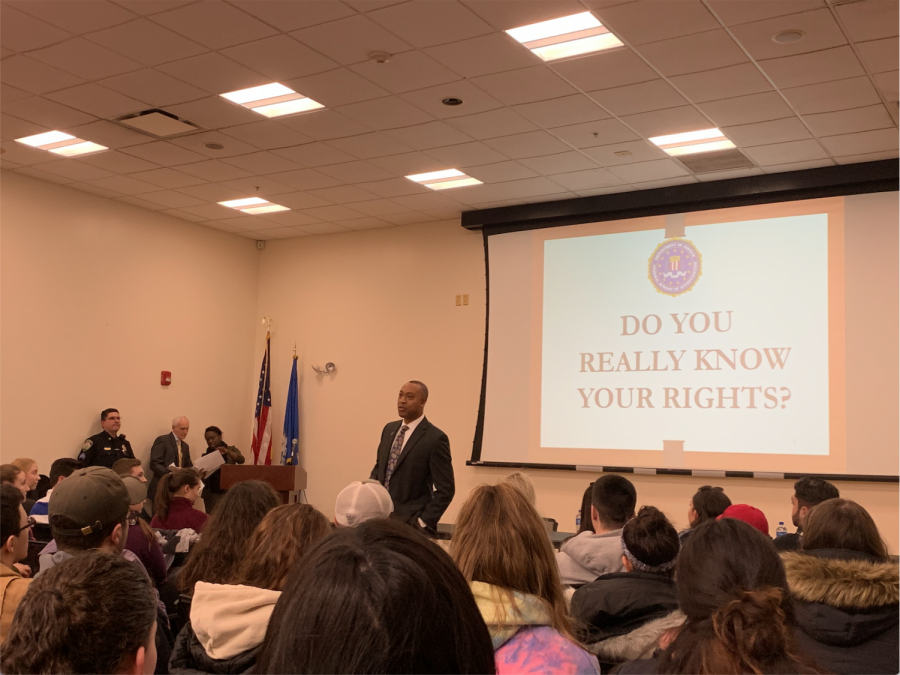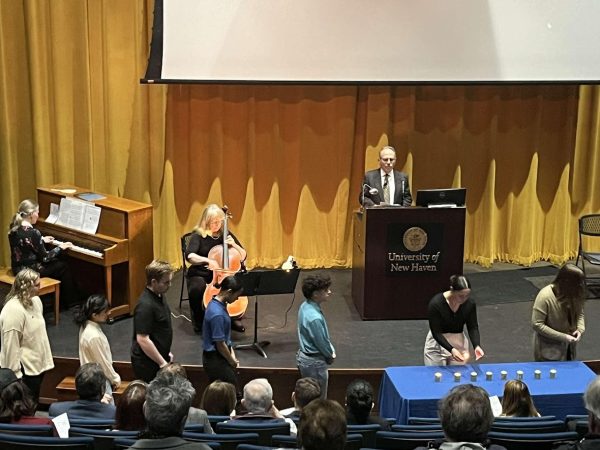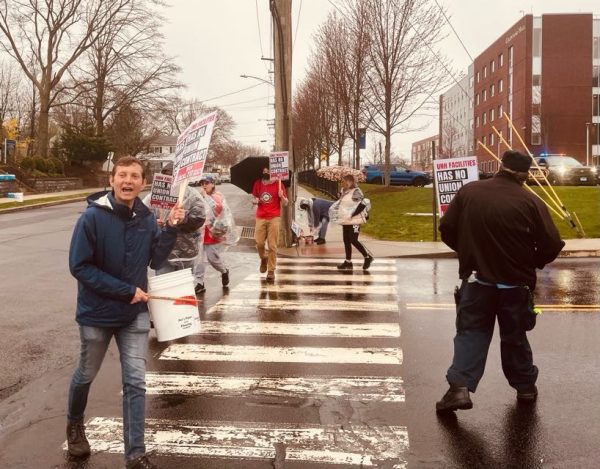ACJA Hosts “Know Your Rights” Panel
Photo Courtesy of Everett Bishop
iyufhdjs
The American Criminal Justice Association (ACJA) hosted a “Know Your Rights” panel to a packed Alumni Lounge on Monday, Feb. 25. Panelists talked about common misconceptions people may have about what exactly their rights are when confronted by law enforcement, and the proper protocol to follow.
Members of the panel included FBI outreach specialist, Charles Grady, assistant United States attorney, Ndidi Moses, University of New Haven police sergeant, Luis Dos Santos, and FBI agent, John Sereno. Grady and Moses led most of the discussion, asking the audience questions about the criminal justice system, and giving them different scenarios to work through.
“You’re a police officer and you pull over a college student for failing to stop at a stop sign,” said Grady. “As you are talking to him or her, you notice two cell phones in the center console, air freshener in the car, and the student appears nervous. What do you do?”
Students who responded said that the officer should continue the conversation, suspecting that the student in the scenario had drugs on them. Grady closed the scenario saying that “one phone was his, the other was his girlfriend’s,” and that it’s “not enough” to just suspect someone of a crime, but that “you have to see something.”
Grady also talked about some of the split-second decision making that officers make in potentially high risk situations. To prove his point, Moses brought up a video of a fight that broke out in a crowd of college students at Kentucky State University.
“It is mayhem and you literally have to make decisions on ‘Am I going to try to enforce laws in this level of mayhem? Or am I going to wait for backup?’,” said Grady.
Grady also shared that one of the most important things to do when faced with arrest is to simply comply with the officers. Once a police officer tells you that you are under arrest “you have lost the right to say no.” Anything other than complicity can be labeled as resisting arrest, and that will increase the severity of the charges against you.
“I know I didn’t do anything wrong. The police officers asked me questions, they want my identification, they want to know where I’ve been, where I’m going. What do I do? What would you do? You’re just driving down the street. ‘Driving while black’ as they call it,” said Moses, sharing her story about being pulled over by three police officers with her six-month old son in the backseat.
Moses revealed that in her position, she didn’t have to answer any of the questions the police had for her, but that “if you choose not to answer, you have to comply with their requests.” This trick doesn’t work if the officers “have specific information about you that they need from you.” This would include an instance where police could ask someone if they were driving drunk after officers saw the person in question leaving a bar.
Grady closed the panel by telling those in attendance that the criminal justice system isn’t what it seems like on television.
“If you’re just here because you want to catch the bad guy, then this isn’t for you,” said Grady.

Everett Bishop is a senior at the University of New Haven and is student life editor for The Charger Bulletin. He is double majoring in communications...










